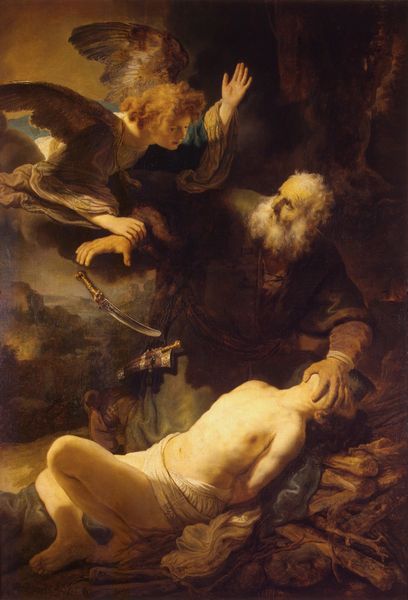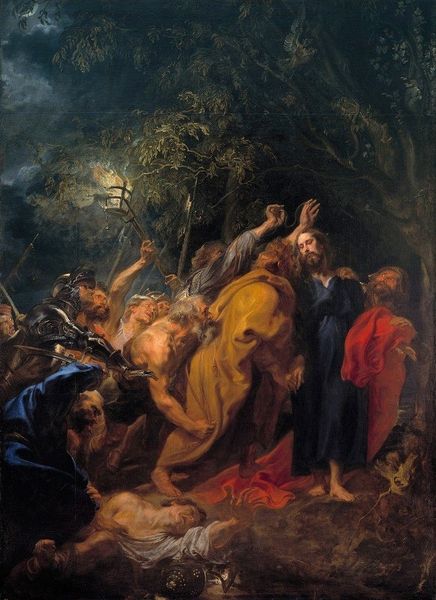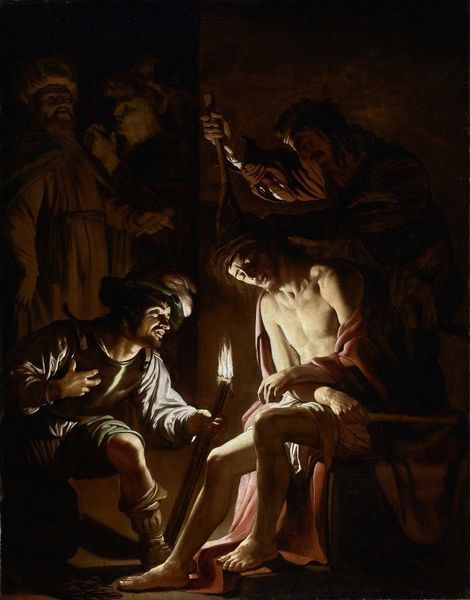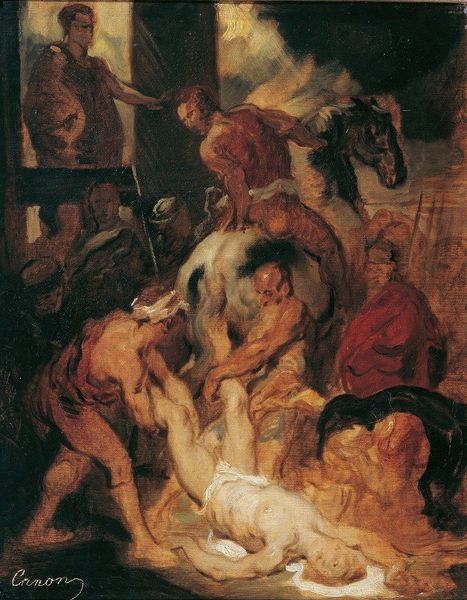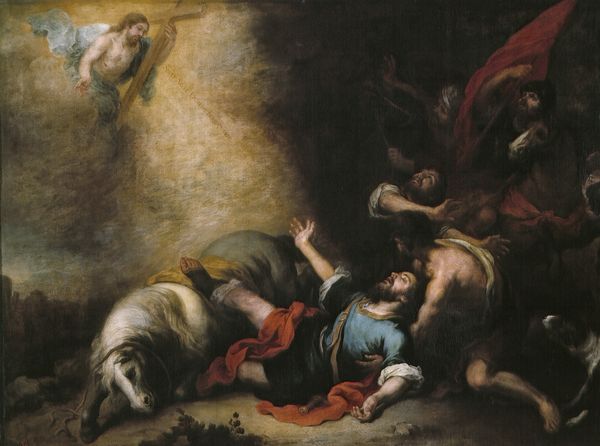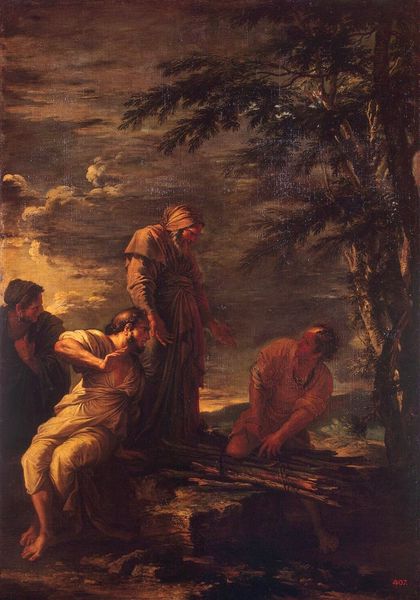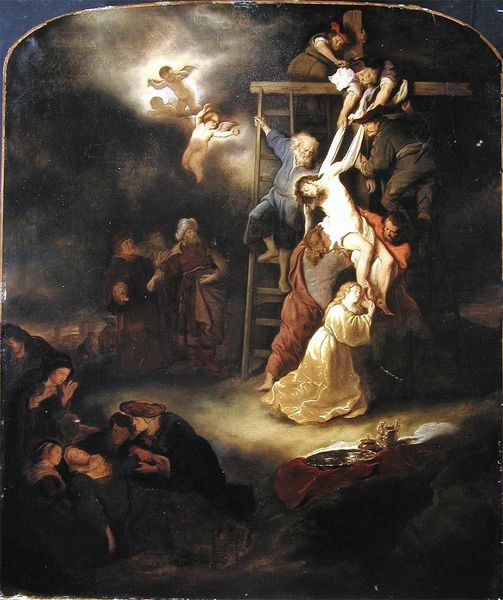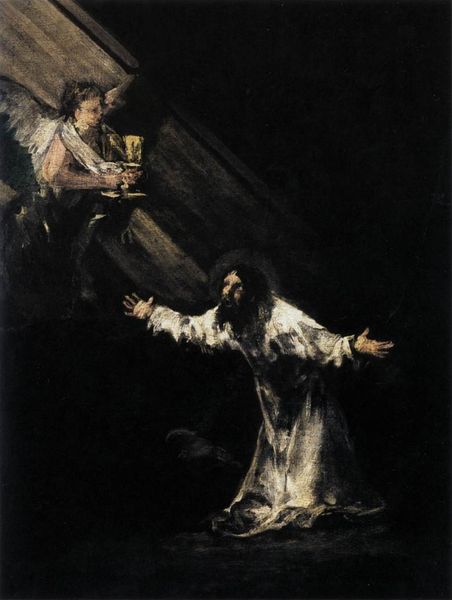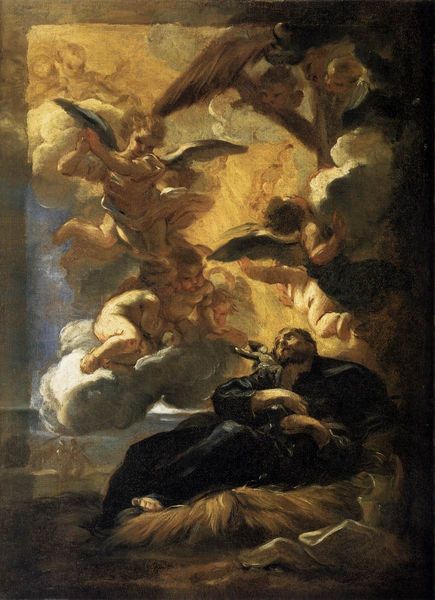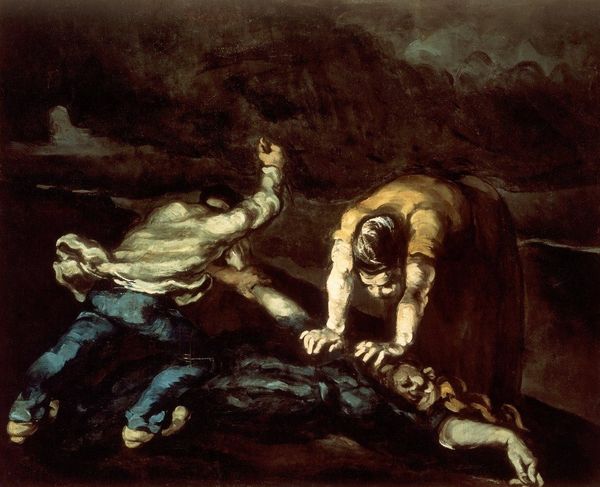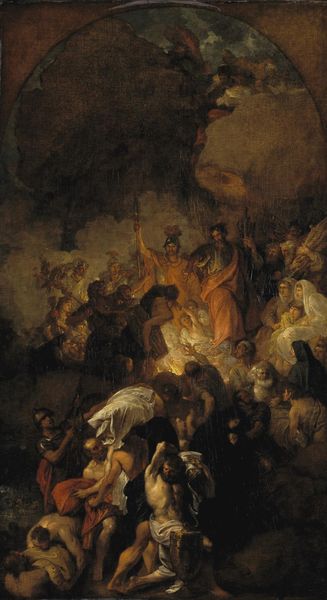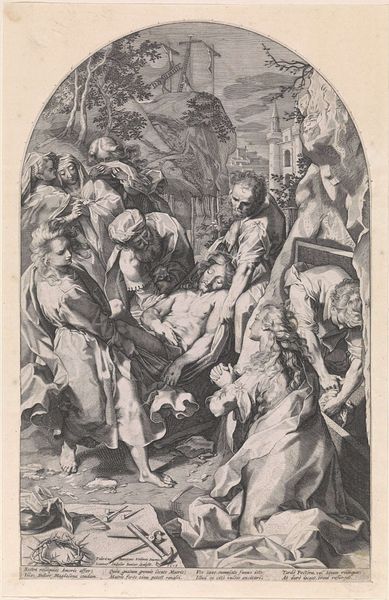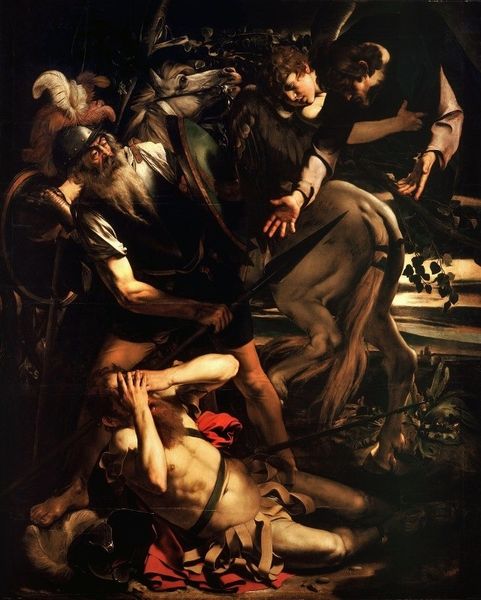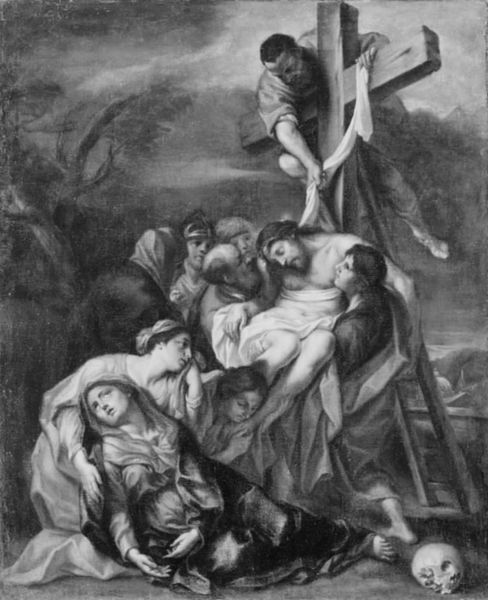
The Stigmatization of St. Francis 1616
0:00
0:00
peterpaulrubens
Wallraf-Richartz Museum, Cologne, Germany
#
impressionistic
#
abstract expressionism
#
sky
#
abstract painting
#
possibly oil pastel
#
neo expressionist
#
gloom
#
gloomy
#
murky
#
dark vibe
#
expressionist
Dimensions: 382 x 243 cm
Copyright: Public domain
Editor: Here we have Peter Paul Rubens' "The Stigmatization of St. Francis" from 1616. There's a real intensity to it, a kind of dark and mystical energy. What do you see in this piece? Curator: This painting, beyond its overt religious subject, provides a lens to view the power dynamics between the Church and its followers, as well as the very idea of "holiness" being tied to suffering. Rubens captures a pivotal moment: St. Francis receiving the stigmata, Christ's wounds. But I see not just religious ecstasy, but a profound, potentially subversive engagement with power. Editor: Subversive? In what way? Curator: Think about it. St. Francis is essentially being branded, marked. His body becomes a site of inscription, mirroring Christ's sacrifice. Consider how the visual drama of light and shadow enforces a particular theological narrative. This divine “branding” isn't inherently positive when we view it through the framework of societal power and control. It's asking us to question if such an act could challenge systems or ultimately, just enforce conformity through pain. What do you make of Francis's almost theatrical reaction? Editor: I see it now! He seems to be inviting the wounds almost. That resonates in our own time with ideas about body modification or the way certain subcultures mark themselves as acts of rebellion, maybe? Curator: Exactly! It encourages dialogue between then and now: Who controls the narrative? Whose bodies bear the marks of authority? And can those marks ever be reclaimed as a form of agency? The interplay between violence, faith, and individual will is what fascinates me. Editor: This conversation shifted my thinking significantly. Thank you! I’ll never see this as just a standard religious scene again. Curator: It is in grappling with these challenging perspectives that we allow ourselves to move beyond passive observers and become engaged participants in shaping our world.
Comments
No comments
Be the first to comment and join the conversation on the ultimate creative platform.
